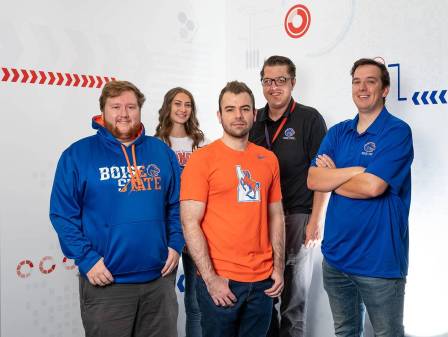Responding to heavy demand, ISTE expands technology training program for teachers
The International Society for Technology in Education is expanding its teacher-training program for K-12 educators interested in using technology in the classroom, in a response to increased demand for the training.
The Washington D.C.-based edtech nonprofit launched its certification program in May as a “competency-based, vendor-neutral certification” focused on digital age methods. The certification — which takes five to eight weeks and involves online and face-to-face training — is built on ISTE’s standards for educators , which offer seven roles a teacher should play in the classroom — a learner, a leader, a citizen, a collaborator, a designer, a facilitator and an analyst.
ISTE’s goal is to train 1,000 teachers by the end of 2018.
“ISTE is about shifting mindsets and driving innovation in education,” said ISTE CEO Richard Culatta. “This new certification provides an exciting opportunity for educators to do just that, and gain valuable skills, raise the level of their practice and be recognized for this effort.”
The certification is designed to improve teachers’ comfort with technology, bringing “transformative change” to classrooms, the group says. After passing 30 hours of instruction, educators have six months to build an online portfolio to submit to ISTE that can ultimately result in certification and graduate credits at the Dominican University of California.
The certifications began with four authorized providers — the Midwest Education Technology Community, Northwest Council for Computer Education, New York State Association for Computers and Technologies in Education, and Texas Computer Education Association — though ISTE says that it plans to add more.
The organizations providing certifications to educators in all 50 states include the Illinois Computing Educators, the Cooperative Educational Service Agency 2 in Wisconsin, Butler County Educational Service Center in Ohio, Lincoln Intermediate Unit 12 in Pennsylvania, Collaborative for Educational Services in Massachusetts, and Eduscape.
The expansion follows past initiatives in which ISTE has proven a strong supporter of technology in education. In June, it announced a new platform for educators to review edtech in the classroom. The group also announced its support for a $2.055 billion expenditure on Title II-A, legislation intended to “provide students from low-income families and minority students with greater access to effective educators through quality professional learning experiences.” That funding is included in the 2019 spending bill, set to increase funding by $70 million for Title IV-A, which would go to the use of technology in schools, along with health and safety programs.
“This legislation demonstrates a national commitment to fund educator professional learning to use technology to improve learning and accelerate student success. For those reasons, I believe the bill merits the President’s signature,” Culatta said in a statement.
Culatta was hesitant to support the total language of the bill, however, citing concern that the funding could be rerouted for the purchase of firearms at schools, a reference to the Trump administration’s proposal that teachers be armed with guns to defend against school shooters.
“ISTE does not believe that school districts should spend dollars intended for teacher technology professional development, mental health programs and a host of well-rounded academic programs on uses that Congress clearly did not contemplate when crafting the Every Student Succeeds Act,” Culatta said. “I urge Congress to resolve this issue definitively, in separate legislation, when it returns to session.”




